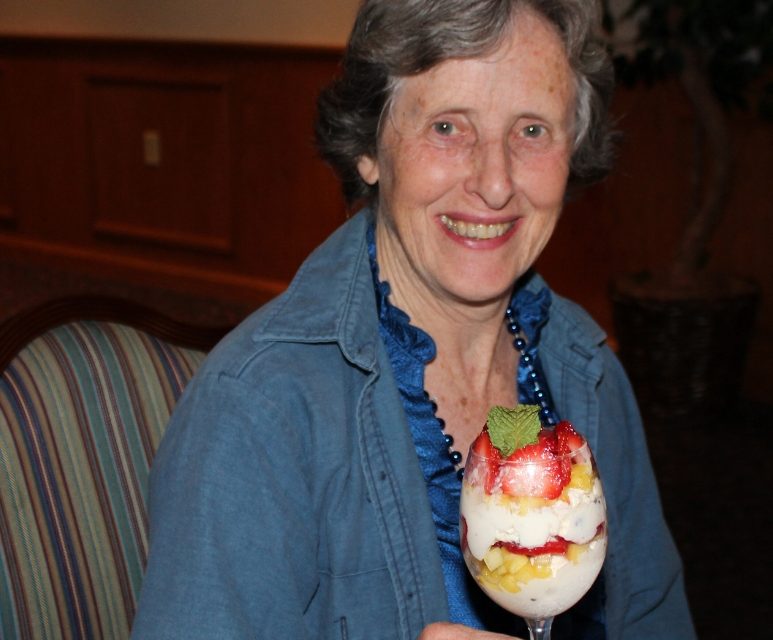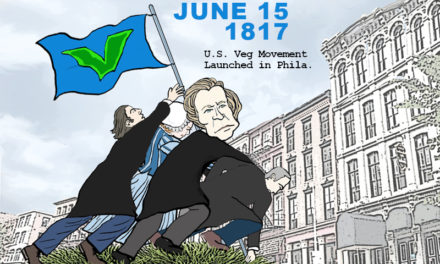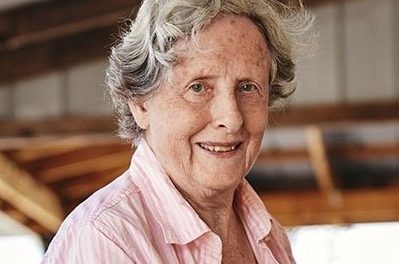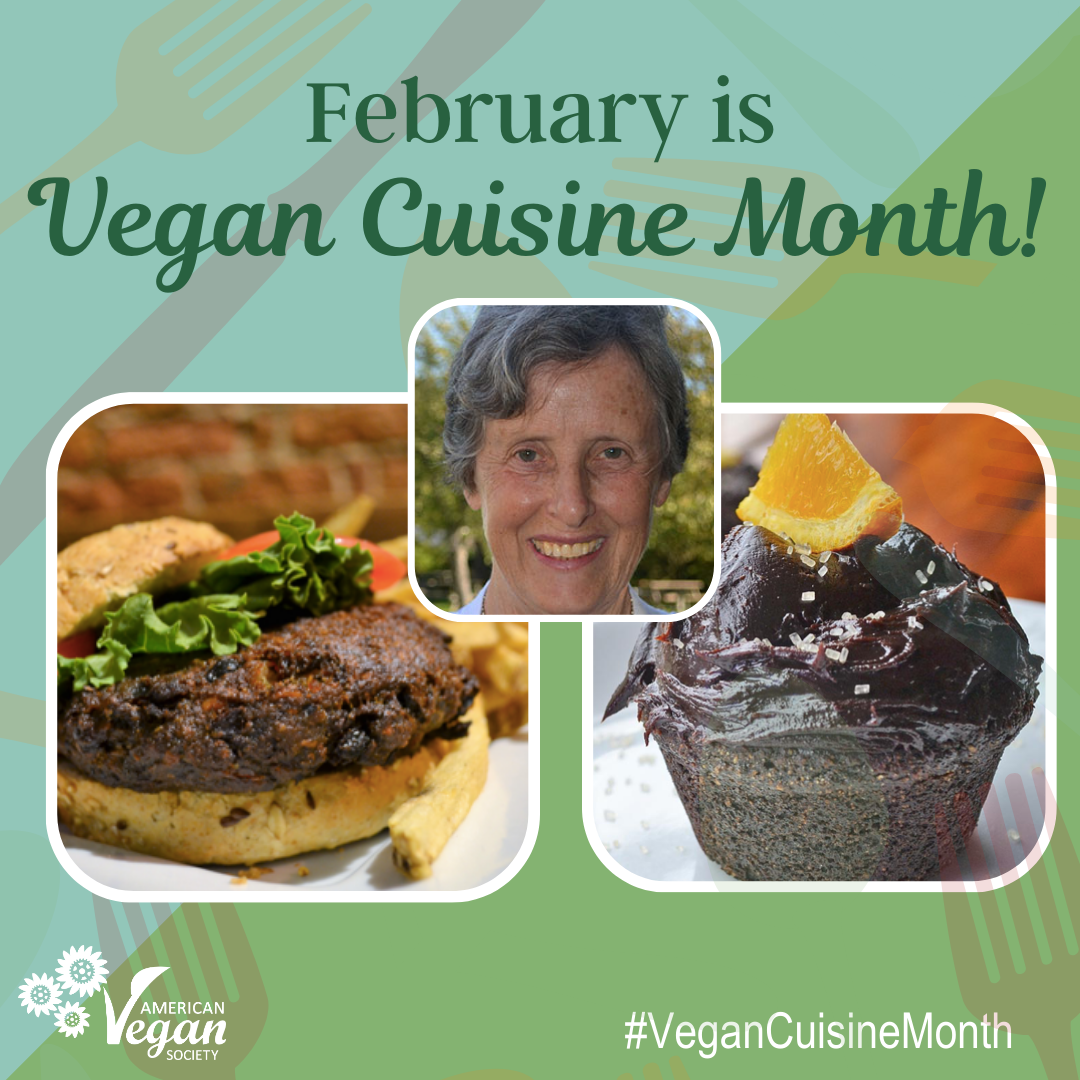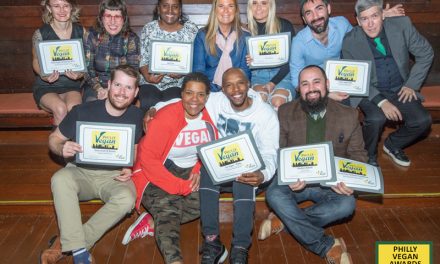As she steps down as President of American Vegan Society, AVS staff caught up with Freya Dinshah for personal achievement stories and a sneak peek at the next chapter in her life.
Please talk about people whom you have led to veganism.
My sister and parents became vegan. Dr. Frey Ellis, a hematologist who lived across the street, also influenced them. Dr. Ellis’ study of how a vegan diet could alleviate the symptoms of angina was published in The Lancet. He also documented that vegans are at least as healthy as omnivores. Many people have been influenced by the American Vegan Society. We corresponded with Victoria Moran (Main Street Vegan author) when she was striving to go vegan in her twenties.
Tell us about being the Nutrition Advisor for a local afterschool program (2008-2020). How did that come about?
When Vesanto Melina, MS RD, visited Malaga and offered to speak, I asked if she would talk to an afterschool program for local children. She gave an engaging presentation about the parts of plants we eat: celery stalks, broccoli flowers, carrot roots, sunflower seeds, etc. Then we had a snack of hummus, raw vegetables, and crackers with fresh figs and persimmons for dessert. Inspired by the success of that evening, the snack leader thought we could make some changes. “How about a vegetable soup?” I offered. We quizzed the kids about what vegetables they liked. They started saying things like peas, onions, carrots, and then one child said, “chicken” and another promptly said, “That’s not a vegetable!” The next week I took a variety of vegetables, and the children were invited in turn to come and wash and chop them. (We taught them safe knife skills.) The vegetables went in the pot, and I added some split peas to thicken the broth. When the soup was cooked, some chopped fresh mint was stirred in. We also served baked pita-bread triangles with peanut butter. The children ate their soup and wanted second helpings. When their parents came to pick them up at the end of the evening program, they could not believe their children were eating vegetables! Since we had plenty of soup, some parents enjoyed a bowl too. This evening inspired more healthy snacks, weekly or monthly, for the next twelve years—a program focusing on (plant) foods the USDA urges Americans to eat more of! In 2024, Rutgers University came into the area to give community classes featuring fresh fruits, vegetables, and whole grains — with vegan recipes.
What is the story behind how the gourmet dinners started with the culinary arts students?
The dinners came about by chance in 2010. I visited Atlantic Cape Community College and discovered their Academy of Culinary Arts and Carême’s Restaurant. I learned that they offered catered group dinners and asked if they could accommodate a “vegan” menu. The answer was, “Yes!” They welcomed us, and we began hosting dinners there each semester. This arrangement proved beneficial for our members, their friends, the public, and the culinary students. Each dinner showcased gourmet vegan dishes, which delighted us and introduced the students to a growing clientele. As a result, vegan cuisine entered their regular curriculum.
What does the future hold for you at AVS?
My new role will be president emeritus in an advisory capacity. I will also continue as senior editor of American Vegan magazine. I’m going to be working on our presidential library, which contains books that have been published in the last 65 years and earlier that chronicle the development of veganism. This reference library in our headquarters in Malaga NJ will house the books we’ve considered good enough to buy and sell to others, plus some given to us: books on animal rights, health, philosophy, cookbooks, and much more. I am happy to be able to relax seeing the expansion of veganism!
What are your thoughts about the future of AVS?
I foresee a strong future for AVS. We have a healthy mix of experienced talent and new ideas. We have new leadership and an expanding staff with the younger generations. The movement has new demands. We have a new strategic plan, and Anne is our first CEO. We are excited to empower people in new ways while continuing our commitment to education and advocacy.
Do you envision a vegan world?
People are going to be pushed in that direction, out of necessity. It’s not environmentally sustainable for people to eat as much meat as they have or want to. Right now, meat producers are cutting down the Amazon and other forests for grazing animals and producing crops to feed the animals. The world just can’t continue this way.
Excerpted from American Vegan magazine, Spring 2025.

